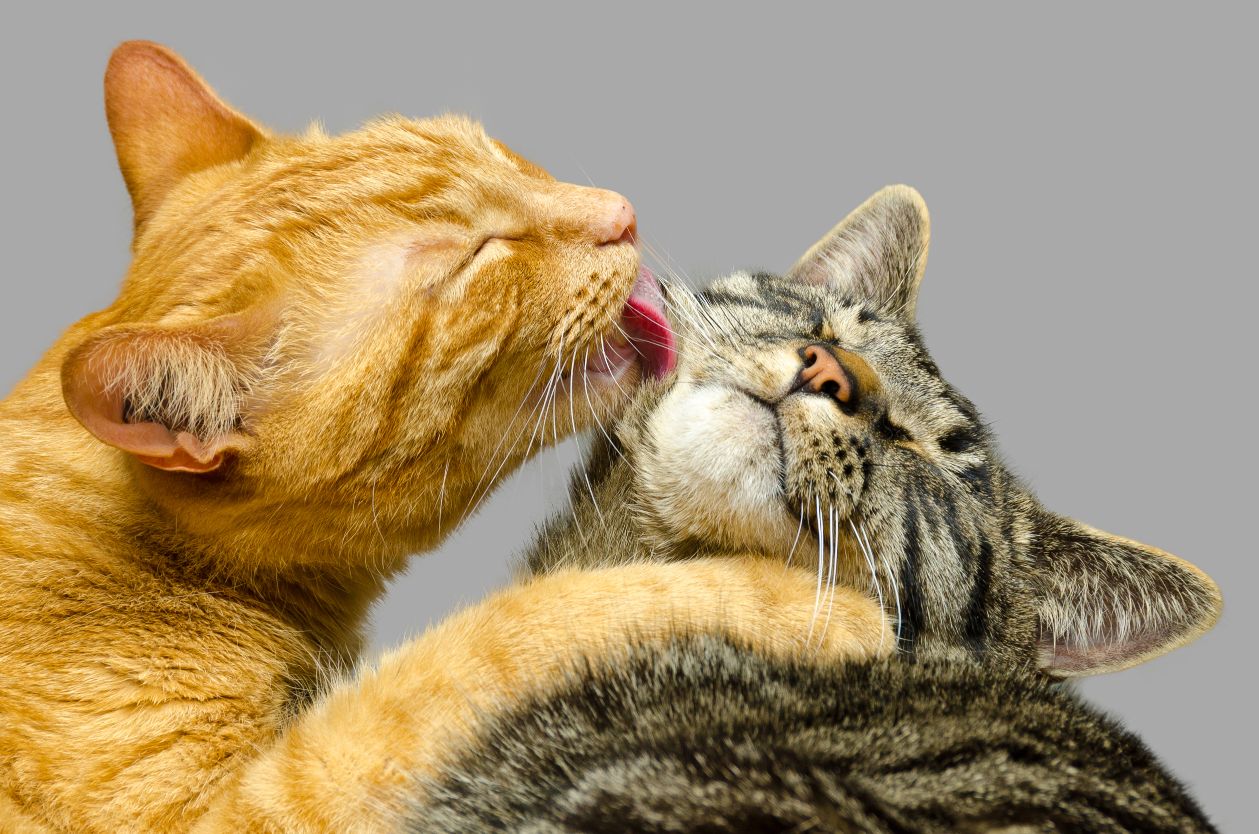Coughing Cat: Hairball or More?

If you’ve been a cat owner for any length of time, you’ve likely cleaned up your fair share of hairballs. For the most part, hairballs are harmless—if a bit uncomfortable for the cat and inconvenient for the owner. But before you brush aside any cat cough as “just another hairball,” it’s important to be aware that a coughing kitty may have a more serious medical condition that warrants attention.
At Bowman Veterinary Hospital, we love keeping cats healthy with comprehensive wellness and preventive care. And we’re happy to help you understand the reasons why cats cough and how to know when it’s time to call the veterinarian.
What Causes Hairballs?
When a cat cleans herself, her rough little tongue pulls in a lot of fur. Most of it will move through her digestive system just fine, but if the fur starts accumulating in her stomach, she will try to get rid of it by vomiting. Regular grooming can help reduce the frequency of hairballs.
Allergies and Asthma
A hairball may not be to blame if a coughing cat is also sneezing or wheezing. This combo of symptoms could mean she has cat asthma or allergies, both of which can be triggered by environmental allergens like pollen, mold, or dust mites; and household irritants like cleaners, aerosol sprays, and cigarette smoke.
Cats Can Have “Kennel Cough”
While kennel cough is typically associated with dogs, cats can contract kennel cough if they’re exposed to an infected dog or other infected cat. A cat exposed to the bacteria that causes kennel cough (Bordetella bronchiseptica) will experience a runny nose, eye discharge, coughing, and other symptoms.
Respiratory Illnesses
An infection in the upper respiratory tract can cause lethargy, sneezing, coughing, and other symptoms. Respiratory conditions that impact cats include feline herpes virus, feline calicivirus, feline chlamydiosis, fungal infections, and even some canine flus if the cat is around dogs. Heartworms will also make cats cough. Protect your cat by keeping her up-to-date on vaccines and parasite prevention.
Vomiting
Cats allowed outdoors for supervised adventures might eat a little grass and then vomit it up later. This is common—and harmless. But a cat experiencing frequent bouts of vomiting should be seen by a veterinarian right away. Vomiting could be a sign of a serious illness or poisoning.
When to Call the Doctor
Contact us right away if your coughing kitty is experiencing other symptoms, such as:
- Persistent gagging that doesn’t produce a hairball
- Lack of appetite/weight loss
- Vomiting up sputum
- Wheezing
- Lethargy
- Constipation
- Sneezing/watery eyes
A comprehensive examination with diagnostics will tell us if allergies, a respiratory infection, or other cause is to blame, so we can get your coughing cat on her way back to better health.
If you have concerns about your coughing kitty and would like to schedule an appointment, please call us at (530) 823-6306.


